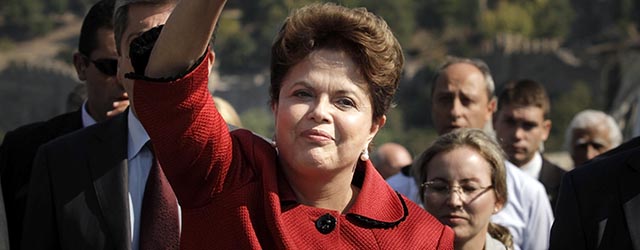The axe fell on Brazil heading into 2016 as it suffered a downgrade to junk status by Fitch Ratings, heightening the air of crisis as the beleaguered nation grapples with political turmoil and recession.

Two days after the downgrade, Brazil’s Planning minister, Nelson Barbosa replaced Joaquim Levy as Finance Minister.
“We need political clarity,” said Otaviano Canuto, executive director at the board of the International Monetary Fund for Brazil. “The uncertainty is causing massive damage to the Brazilian economy.”
Forecasters predict a 2.7% negative growth rate in 2016, following a 3.6% decline in GDP this year. At this rate, whether under president Dilma Rousseff’s leftist government or a new administration, Brazil will likely start 2017 with the accumulated burden of three consecutive years of negative growth.
A better economic performance in 2016 depends on a resolution to the country’s ongoing political crisis. Rousseff is fighting impeachment by a poltical foe in the lower house of parliament. On December 17, a court handed down two rulings that may help her block the process. Political woes are being fed by endless corruption scandals and pressures stemming from higher US interest rates, lower commodity prices and preparations to host the Summer Olympics.
Brazil’s primary budget deficit is an estimated 120 billion reais ($31 billion) for 2015, with public debt at 3.8 trillion reais as of October. It is hemorrhaging jobs and the annual inflation rate is above 10%—factors that led Moody’s and Fitch to put Brazil’s sovereign credit rating under review last year, and Fitch to lower the junk boom on December 16, a bit earlier than expected. The Brazilian real and dollar-denominated bonds fell in response to Fitch’s move.
S&P had downgraded Brazil to junk status in September.
Rousseff is fighting to stay in power, but under the shadow of impeachment, she’s losing her ability to govern. Vice president Michel Temer is working with business and opposition leaders to establish a so-called national union government.
Former president Fernando Henrique Cardoso has said that the longer Rousseff remains in power, the weaker she’ll become and the longer a recovery will take.
It’s not clear Temer or anyone else could solve Brazil’s problems. Corruption probes will continue. And compromise is needed to balance the budget and quell popular discontent.



